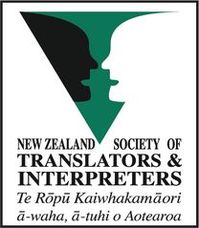Translating Indigenous literature from Aotearoa into Italian: Patricia Grace’s Pōtiki and Hone Tuwhare’s Small Holes in the Silence.
DOI:
https://doi.org/10.26686/neke.v6i1.9503Abstract
In this article, I aim to give some insight about translating into Italian two original bilingual works of literature from Aotearoa New Zealand, with te reo Māori as a crucial and enriching part of NZ English. I will focus on the iconic novel Pōtiki (1986) by Patricia Grace and on Hone Tuwhare’s celebrated poetry from Small Holes in the Silence (2016). In translating NZ literature, I have always been fascinated by new English words, puns and metaphors often entangled with Māori phrases, which clearly have no correspondence in the Italian language. As a translator, my intention is to echo the colours of words from the unique voices of Kiwi authors – the colours of words being conveyed through lexicon, syntax and rhythm. I believe that translating literature is a form of art: the constant choice of vocabulary and style means creative interpretation. On the other hand, in giving foreign readers access to original texts, the “invisibility of translation” ought to be retained1 . Invisibility is a kind of paradox: it depends on the translator’s skills to maintain this mediation imperceivable within that creative relationship. A good translation expresses the unique and diverse voice of the author, and surely, one of the most challenging tasks in literary translation is keeping faith to the original cultural context and registers through usage of contemporary, updated language. One example: Patricia Grace often used the word “race” in Pōtiki which was considered acceptable back in the 1980s but it was not longer recommended for use in 2017, when I translated the book; thus, I translated “one of our race” as “one of us” (“uno di noi”). Having Patricia Grace’s support and guidance throughout the translation of her work has been priceless and made me feel so honored. Also, I am thankful to Rob Tuwhare, for his kind assistance and enthusiasm during the translation of his father’s poems into Piccoli Buchi nel Silenzio (2018). I think it is dutiful, as a translator, to give a contribution to the diffusion of a wonderful, ancestral culture which is being continued, amplified and re-created in a written form by generations of authors – whose Resistance is inspiring. Finally, I will comment on the importance of translating Indigenous literature from Aotearoa into Italian, given the historical and cultural connections between those two countries and their people.

2.jpg)




.jpg)
